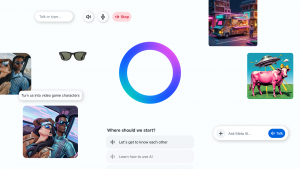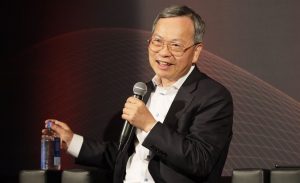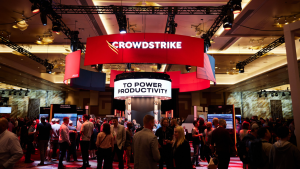Nokia Plan B, the Sound of a Shareholder Revolt
![]() A group identifying themselves as “nine young Nokia shareholders” has written an open-letter to Nokia’s shareholders and investors in a blog post aptly named “An open letter to Nokia shareholders and institutional investors.” In their letter, they state that they plan to seek challenge the company’s current strategy at the next Annual General Meeting on May 3, 2011. Currently the letter is penned anonymous and the contact section of the blog is unavailable due to an HTTP error (“503 Service Temporarily Unavailable”). The letter covers a lot of basic criticisms of the current tack of the corporation and a series of extreme management shake-up expectations should the nine be elected to majority.
A group identifying themselves as “nine young Nokia shareholders” has written an open-letter to Nokia’s shareholders and investors in a blog post aptly named “An open letter to Nokia shareholders and institutional investors.” In their letter, they state that they plan to seek challenge the company’s current strategy at the next Annual General Meeting on May 3, 2011. Currently the letter is penned anonymous and the contact section of the blog is unavailable due to an HTTP error (“503 Service Temporarily Unavailable”). The letter covers a lot of basic criticisms of the current tack of the corporation and a series of extreme management shake-up expectations should the nine be elected to majority.
One of the first bullet points in the letter happens to include the expulsion of Stephen Elop, current CEO of Nokia Corp. If there’s anything we can guess they’re after, they probably don’t see the recent deal between Nokia and Microsoft as a good thing, which puts them in the same boat with much of the Nokia fan base.
Here’s the summary of their bullet points,
- Return the company to a strategy that seeks high growth and high profit margins through innovation and overwhelmingly superior products with unrivaled user experience.
- Maintain ownership and control of the software layer of the Nokia products. Software is where innovation, differentiation and shareholder value can most easily be created.
- Revamp hiring strategy to target the top young software talent from around the world. Only if Nokia is able to attract and keep the best talent in the industry it will be able to generate the level of innovation that is needed to achieve sustained growth and consistently high profit margins.
- Dramatically increase efficiency by eliminating outdated and bureaucratic R&D practices like geographically distributed software development and outsourcing.
- Avoid at all cost becoming a poorly differentiated OEM with only low margin, commodity products that is unable to attract top software talent and cannot create shareholder value though innovation.
Several of these bullet points actually fit why Stephen Elop’s “burning platform” memo from last Wednesday and the deal with Microsoft are such a big event for Nokia’s future. The Shareholder Nine appear to see that Nokia is suffering from a lack of innovative inertia due to R&D difficulties—in fact, Nokia has been stalling in their course due to a lack of products to market and a lot of catch-up being played with market leaders like Google and Apple.
Amid the more detailed bullet points, they mention repeatedly that young software developers need to be courted and won from recent university graduates. In fact, while Nokia has always been a product leader when it comes to good hardware, their venture into the software market has been extremely lackluster in its reception. Also the new market isn’t just about software—it’s about the “application ecosystem.”
People overuse the word ecosystem when referring to products and developers out there in the world, but it’s often a fair metaphor. The app market has been a major driving force behind what sells both Android and iOS devices, as customers want devices that do what they want (or they can extend it to do what they want easily) and they want it to do what their friends’ devices do. Smartphones and mobile devices are fundamentally social and people do not want to be left out.
Android and iOS devices have a huge app market and a giant variety of developers churning out a buffet of interesting things that personalize smartphones into augmentations of our own social and physical lives. To thrive in this market, Nokia will have to do more than just attract developers for their own software; but they need to show that they’ve got a powerful enough and workable enough platform to attract a share of the many app developers just itching to get onto the next-big-platform.
The Shareholder Nine see the deal with Microsoft as primarily an in for the United States market and would like to leverage it that way. They also don’t want to see Nokia become the next Windows Phone 7 OS platform and have written in their detailed points that they would avoid that by putting far more development into software and OS design, specifically MeeGo by making it the primary Nokia platform.
A message from John Furrier, co-founder of SiliconANGLE:
Your vote of support is important to us and it helps us keep the content FREE.
One click below supports our mission to provide free, deep, and relevant content.
Join our community on YouTube
Join the community that includes more than 15,000 #CubeAlumni experts, including Amazon.com CEO Andy Jassy, Dell Technologies founder and CEO Michael Dell, Intel CEO Pat Gelsinger, and many more luminaries and experts.
THANK YOU













